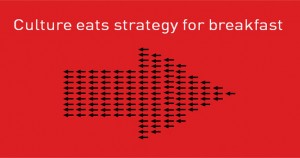Tips on Business Writing
 I returned to academia last fall as an adjunct professor at the University of Denver. I teach within University College which provides professional and continuing education within the larger university. Most of my students are in their 30s or even 40s and many of them work within IT organizations. By and large, they know current enterprise technologies better than I do. They’re now returning to school to study for a Master’s degree that will help them move into management. That’s where I come in — I teach courses on how to manage IT processes, functions, and portfolios. I also teach the Capstone seminar where students demonstrate that they can take all that they’ve learned in their Master’s courses and use it to solve a problem in our profession.
I returned to academia last fall as an adjunct professor at the University of Denver. I teach within University College which provides professional and continuing education within the larger university. Most of my students are in their 30s or even 40s and many of them work within IT organizations. By and large, they know current enterprise technologies better than I do. They’re now returning to school to study for a Master’s degree that will help them move into management. That’s where I come in — I teach courses on how to manage IT processes, functions, and portfolios. I also teach the Capstone seminar where students demonstrate that they can take all that they’ve learned in their Master’s courses and use it to solve a problem in our profession.
I love working with my students both online and in the classroom. As is often the case, I probably learn more than they do. What surprised me, however, was the relative lack of writing skills among my students. They can write excellent Java code but they sometimes struggle with expressing their more abstract thoughts in written form. To help remedy this situation, I’ve written a six-page primer on effective business writing. It’s proven popular among my students and I thought you might like to read it as well. You can find the .pdf file here. If you find it useful, please feel free to pass it on.
Go Poets! Poetry at the Olympics
 Did you know that poetry was an Olympic sport — with gold, silver, and bronze medals? Long, long ago, the original Greek games always had a poetry festival as well as athletic events. When the games were revived in the modern era, so was the poetry. In fact, the 1912 games in Stockholm featured poetry, literature, painting, sculpture, and architecture. I gather that the poetry had to celebrate sports in some way or another…which led to some embarrassing results. For the Helsinki games in 1952, the various literary/artistic prizes were quietly dropped and they’ve not been seen since. It seems to me that we should bring them back — why not celebrate all forms of human endeavor, not just athletics? To read more about poetry at the Olympics, click here or here.
Did you know that poetry was an Olympic sport — with gold, silver, and bronze medals? Long, long ago, the original Greek games always had a poetry festival as well as athletic events. When the games were revived in the modern era, so was the poetry. In fact, the 1912 games in Stockholm featured poetry, literature, painting, sculpture, and architecture. I gather that the poetry had to celebrate sports in some way or another…which led to some embarrassing results. For the Helsinki games in 1952, the various literary/artistic prizes were quietly dropped and they’ve not been seen since. It seems to me that we should bring them back — why not celebrate all forms of human endeavor, not just athletics? To read more about poetry at the Olympics, click here or here.
Culture Eats Strategy for Breakfast
 A new CEO sweeps into your company and announces a new strategy. Your company hasn’t been doing too well so you think it just might be time for a new strategy — the old one wasn’t working, maybe a new one will. Unfortunately, the new strategy doesn’t fit well with your existing culture, which focuses on quality. The new CEO wants to focus on speed — “Let’s get to market before our competitors do — the first mover has the advantage”. Yet your fellow employees think, “There’s always a market for quality. Quality wins in the long run.”
A new CEO sweeps into your company and announces a new strategy. Your company hasn’t been doing too well so you think it just might be time for a new strategy — the old one wasn’t working, maybe a new one will. Unfortunately, the new strategy doesn’t fit well with your existing culture, which focuses on quality. The new CEO wants to focus on speed — “Let’s get to market before our competitors do — the first mover has the advantage”. Yet your fellow employees think, “There’s always a market for quality. Quality wins in the long run.”
When strategy and culture are at odds with each other, which one wins? Culture wins every time. In fact, Peter Drucker said that “culture eats strategy for breakfast.” Changing strategy is fairly easy — it’s just an announcement. But if the new strategy doesn’t fit the culture, it’s simply an announcement of prospective failure. First, you have to change the culture.
Watch the video for more information on culture versus strategy.
Strategy versus Operational Effectiveness
As the cheshire cat once said, “if you don’t know where you’re going then any road will lead you there.” It’s certainly true of strategy. When I ask companies what their strategy is, they often say things like, “we’re going to reduce our supply chain costs.” While that’s a  good thing to do, it’s not a strategy — it’s operations. Reducing supply chain costs is improving operational effectiveness, not refining your strategy.
good thing to do, it’s not a strategy — it’s operations. Reducing supply chain costs is improving operational effectiveness, not refining your strategy.
To refine your strategy, it’s useful to ask yourself a simple question: “… and where will that lead us?” We’re going to reduce our supply chain costs … and where will that lead us? That will lower our costs … and where will that lead us? That will help us appeal to price sensitive customers … and where will that lead us? Keep asking the same question repeatedly until you reach a logical conclusion. That’s likely to be your strategy.
(Other useful questions to ask are: “…and who would be interested in that?” and “… and why would they buy from us?”. Or simply: “So what?”).
According to Michael Porter, there are really only three strategies that you can pursue. Learn about them in the video.
Breathing and Profits
 People often assume that making a profit is the purpose of business. But is it really? There are many different ways to judge success. Long-term success ultimately comes from your customers’ response to your offer. If you make your customers better in some way — happier, stronger, healthier, etc. — you’ll probably be successful. If you don’t, you won’t. It’s like breathing. Find out more in the video.
People often assume that making a profit is the purpose of business. But is it really? There are many different ways to judge success. Long-term success ultimately comes from your customers’ response to your offer. If you make your customers better in some way — happier, stronger, healthier, etc. — you’ll probably be successful. If you don’t, you won’t. It’s like breathing. Find out more in the video.